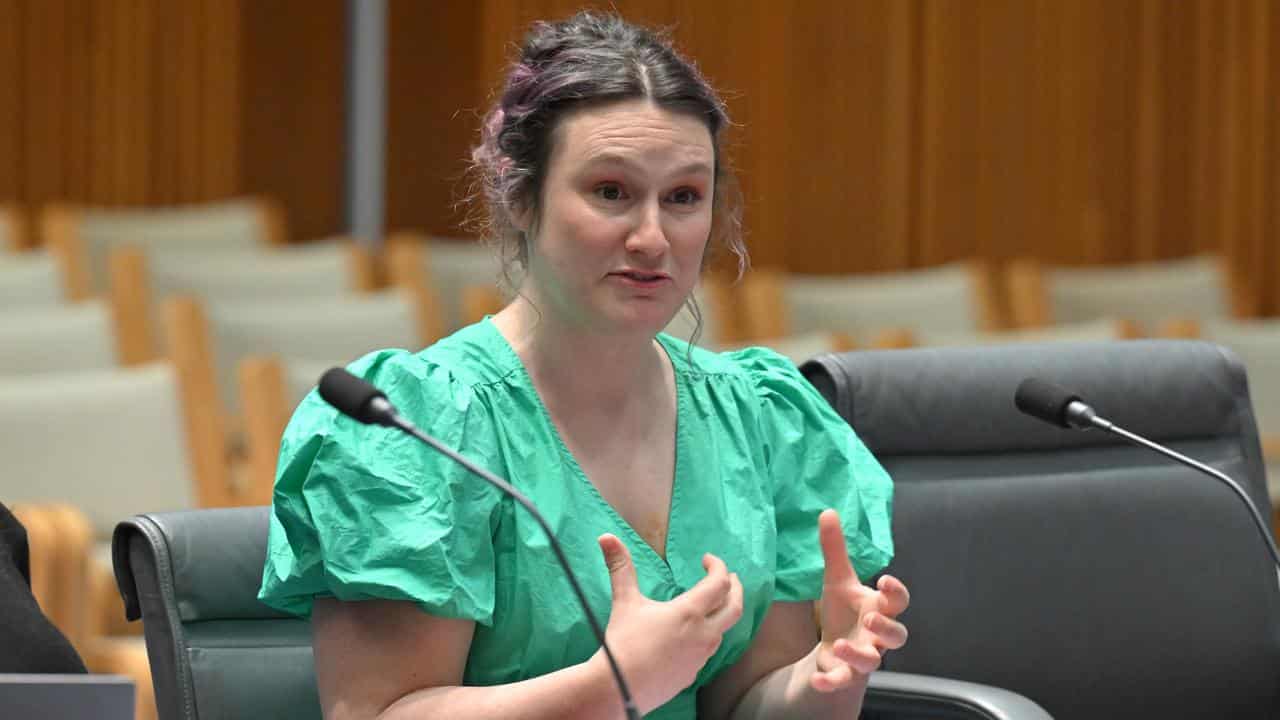
It can be as simple as asking a question but for many Australians sexual consent is confusing, misunderstood or ignored.
Advocates argue it's not just community attitudes that need to change to improve outcomes for sexual assault survivors but powerful players in the criminal justice system too, such as police officers, judges and defence lawyers.
A parliamentary committee is examining inconsistencies in consent laws across jurisdictions, directions to juries about consent, impacts of existing laws on survivor experiences and the adequacy of education programs.
Consent advocate Saxon Mullins told the inquiry the response a survivor received when first making a report about an assault - to a family member, friend or police officer - had a lasting impact on recovery.
She said consent education should be something built upon as children grow up, rather than trying to teach teenagers about it only in the context of sex.
"Consent is in everything we do, it's not just in sexual activity," she said.
Rape and Sexual Assault Research and Advocacy chief executive Rachael Burgin said schools and universities were among the organisations which had an obligation to prevent sexual violence.
"We often talk about juries and the community and forget law makers, police, judicial officers, lawyers are part of that community," she said.
"We need to start holding these systems and organisations to account."
Investigative journalist Jess Hill said there was no point having consent education in schools if there were not guidelines for how they responded to victims and perpetrators, particularly those in the same year group.
Ms Hill pointed out improvements to consent laws and education across the country would make little difference unless the government regulated pornography.
"You've got almost half of Australians between the ages of nine and 16 who are being regularly exposed to porn," she said.
"It is hard to overstate just how damaging that is as a cultural education, particularly for young boys and men."
One in five Australian women and one in 16 men over the age of 15 will or have experienced sexual violence in their lifetime.
Boys aged between 15 and 19 have the highest rates of offending of any age group.
Dr Burgin said consent education needed to be more ambitious than just teaching students about criminal law.
"We need to look at something more rigorous, a comprehensive relationships and sexuality program that doesn't just take into consideration what the legal definition of consent is but what a good, healthy, mutual sex life looks like for young people," she said.
Department of Education officials said it was engaging the Australian Human Rights Commission to deliver a national consent survey to understand students' experiences of and attitudes towards consent education and awareness and exposure to sexual harassment.
Ms Hill advocated for young men to be included in conversations and encouraged to talk about sexual relationships and violence.
"There's a real risk at the moment where, in addressing consent and sexual violence, we end up stoking male resentment by not welcoming them into the conversation in a way that they feel comfortable," she said.
The committee heard that while legal frameworks relating to sexual violence are predominantly the responsibility for states and territories, the "scale and severity of sexual violence in Australia" required national leadership.
A national plan, released last year and led by the Department of Social Services, underpins the federal government's strategy to address family, domestic and sexual violence.
First assistant secretary at the Attorney-General's department Esther Bogaart said the plan provides a national policy framework for the next 10 years to "work towards ending gender based violence in one generation".
A national working group, also established last year and chaired by the Attorney General's department, aims to strengthen criminal justice responses to sexual assault with the guidance of state and territory justice officials under a five-year plan.
The Australian Institute of Criminology is also conducting a national review of sexual assault legislation with a report to be released later this year
1800 RESPECT (1800 737 732)
National Sexual Abuse and Redress Support Service 1800 211 028
Lifeline 13 11 14




